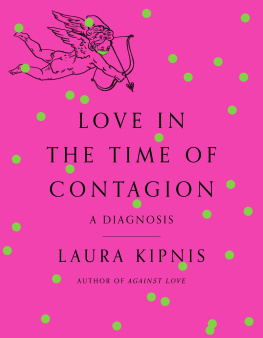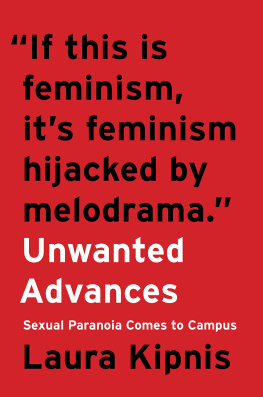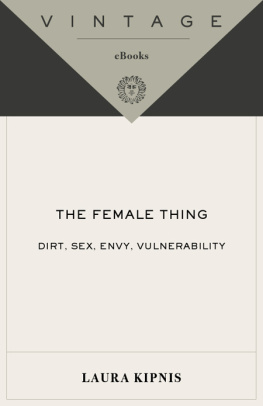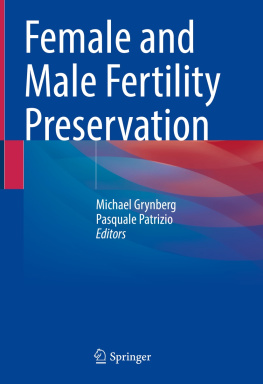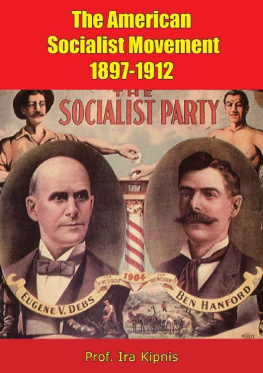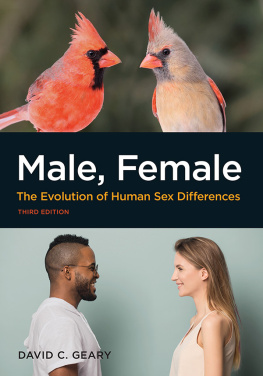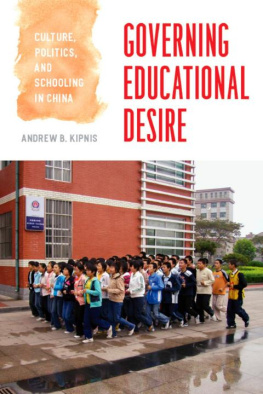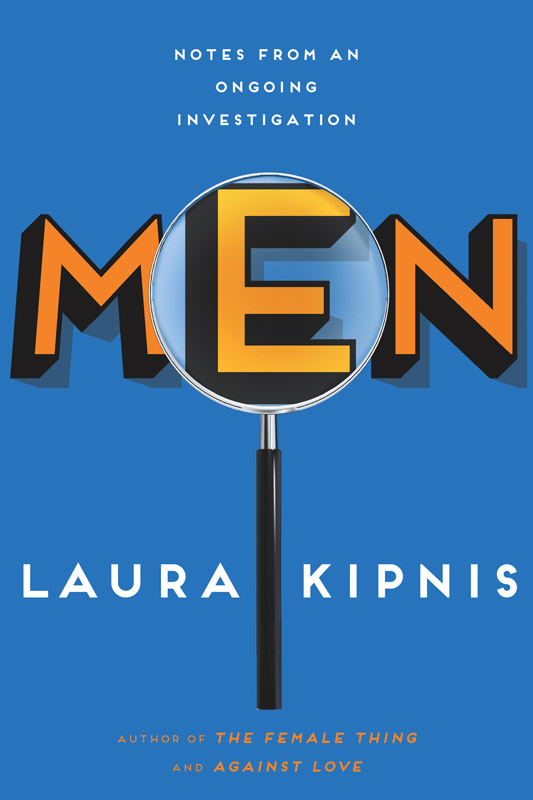Contents
Guide

The author and publisher have provided this e-book to you for your personal use only. You may not make this e-book publicly available in any way. Copyright infringement is against the law. If you believe the copy of this e-book you are reading infringes on the authors copyright, please notify the publisher at: us.macmillanusa.com/piracy.
To J.
ACKNOWLEDGMENTS
Most of these pieces had earlier incarnations; my thanks to the editors who helped shape the ideas and writing the first time around: Scumbag, Joy Press ( Village Voice ); Con Man, Chuck Kleinhans and Julia Lesage ( Jump Cut ); Trespasser, David ONeill ( Bookforum ); Juicers and Cheaters, John Swansburg ( Slate ); Lothario and Gropers, Meghan ORourke ( Slate ); Victim and Humiliation, Michael Miller ( Bookforum ); Critic, Ann Hulbert ( Slate ); Hillary, Amy Grace Lloyd ( Playboy ); Women Who Hate, Jennifer Szalai ( Harpers ).
Many thanks to Jacob Weisberg, who first enlisted me at Slate, which was a great stomping ground and a place to experiment with ideas. Thanks also to my agent, PJ Mark, and to Connor Guy at Metropolitan for his careful readings and attentions. To my fabulous editor, Sara Bershtel: words (and grammar) fail me, or are at least totally inadequate to convey my gratitude, which extends far beyond the stuff on the page. And thank you to Jim Livingston, for being brilliant, unstinting, and a sweetheart.
CONTENTS
PREFACE
Regarding Men
Men have fascinated me, maybe too much. Theyve troubled me. Theyre large and take up a lot of spacespace in the imagination, I mean. They force you to think about them. A daddys girl who grew into a wayward woman, I wasnt that surprised to find, when I started rummaging around in the essays and criticism Id written over the last fifteen or so years, that it wasnt the random, unsystematic tangle Id recalled; instead a lot of it seemed to cluster around the subject of men.
What are men to me? Rereading led to rethinking, which led to rewritingit was like taking a cross-country trip to look up old husbands and boyfriends, then setting up housekeeping with a different one every few weeks: getting to say all the things you wish youd said years ago, admit where youd been wrong, maybe be a bit more generous (or in some cases, less). They were a pretty motley lot, as youll seepoliticians, pornographers, writers, jocks. Some were slobs, some big loverboys, a few were complete shits. It was odd to realize what a different person Id been with each of themthis one brings out your funny side, this one youre so uninhibited with, this one you could never stop judging and correcting. Writing about someone is a kind of intimacy, after all: as in any relationship theres a lot of projection. It goes without saying that we make other people up according to our own necessities and imaginative horizons, writers no less than spouses, nonfiction writers no less than novelists. What strikes me most about these essays is my covert envy of men, including the ones I would also like to thrash and dismember. Men have always wrested more freedom from the world and I envy that, even when its a stupid kind of freedom.
Obviously Im not the only writer in the world preoccupied with men; its been one of those big literary subjects, most of the time for men themselves. Take Martin Amis, whos said that the most persistent theme in his work is masculinity and opens his own collected essays with a certain mordancy on the subject. Amis is particularly attuned to the specimen he names the New Man, whose appearance he dates from 1970 or so. Whats new about this New Man? He makes all kinds of fresh claims on everyones attention, says Amis. Male wounds. Male rights. Male grandeur. Male whimpers of neglect.
No doubt I like this formulation because it weaves my own fascinations into the tenor of our times: Ive been writing about men because they forced themselves on my attention. I was walking down the street minding my own business and they grabbed me from behind, Your Honor. Though whats actually most new in Amiss account of the New Man is his self-irony about these masculine travails. When you contemplate the old literary emblems of manhood, theyre not exactly insouciant on the subject of male wounds. In the lacking-insouciance campand Ive lately been rereading many of the bigger gunsHemingway probably comes first to mind, a writer whose every sentence was scaffolded by such masculine angst hed be a flattened heap without it; self-irony would be tantamount to yanking out his own vertebrae. In this lineage, the perennially embattled Mailer vies for another top berth, someone else who writes as though castration really was an ongoing threat and not just something invented by Freud. Though unlike Hemingway he could also be quite funny on such fates, antic even: perversely energized by the idea that women wanted to take his pen away, as bemused by the role of phallic avenger as he was committed to it. In the notorious Town Hall debate about womens liberation in 1971, Cynthia Ozick brought down the house by asking Mailer from the audience, In Advertisements for Myself , you said, A good novelist can do without everything but the remnants of his balls. For years and years Ive been wondering, Mr. Mailer, when you dip your balls in ink, what color ink is it? Mailer graciously concedes the round to Ozick, adding that if he doesnt find an answer in a hurry hell have to agree the color is yellow.
A lot of women find these phallocratic divas insufferable: they take the bluster to heart, or just think them buffoons (Mailer especially suffers this fateshort pugnacious men are easy to mock). But Ive always felt more complicated about it. When Mailer pauses in the scabrously hilarious Prisoner of Sex to remark of his feminist critics that the best women writers write like tough faggots (he meant it as a compliment), I know I should be stamping my foot along with other offended parties, but I shriek with delight every time I read the sentence. It vibrates with such anxiety, and Mailer wrests such bounty from the condition, he achieves a sort of sublimity.
Of course, it can escape no ones attention that there are as many complaints from women about the New Man as there were about his predecessors: the updated versions of male panic are no less irksome than the old. Todays male is listless, its saidemotionally paralyzed, indecisive, and insufficiently libidinal, on and off the page. The lack of libido is particularly insulting: male desire may have been a little scummy in its heyday, but if its on the way out, that would not be exactly satisfactory either. Novelist Benjamin Kunkel, a kingpin of the younger ranks, advises women to go on sexual strike as a protest against male apathy, but wouldnt this be redundant?
In any case, the inevitability of an ongoing mismatch between the sexes is apparently our little tragicomedy to endure, though on the plus side, it makes the other sex so much more alluring. The capacity to be disappointed by someone confers on them a special emotional force, at least as much as being merely gratified. Its an enduring bond. However, my sorties with the natives lead me to suspect that the general advancement from old-style masculine angst to the self-ironies of the New Man has been a lot more jagged than Amiss insouciance or Kunkels amiability let on. Its those jagged edgeswhere irony fails and male melodrama beginsthat these pieces chronicle.
Something about the poetics of masculine panic, old school and new, just draws me in; these transits between anxiety and excess yank on something similar in my own makeup, I guess. It intrigues me, in a voyeuristic, overly avid way. Weve heard a lot over the years about men objectifying women; I offer myself as illustration of the distaff case. But it would be a pretty diminished imaginative life if we were constrained to identify with one gender alone, wouldnt it? I recall once saying in a semi-drunken state to a badly behaved male writer of my acquaintance: I never know with guys like you, if I want to fuck you, or be youwhich pretty much sums up the situation of a female writer writing about men, I think. By situation, I mean the elasticity of fellow-feeling that stretches to accommodate jealousy, longing, affinity, antagonism, erotics, and every stop in between.


